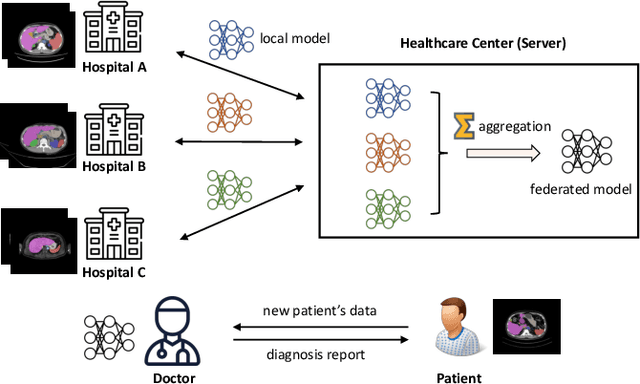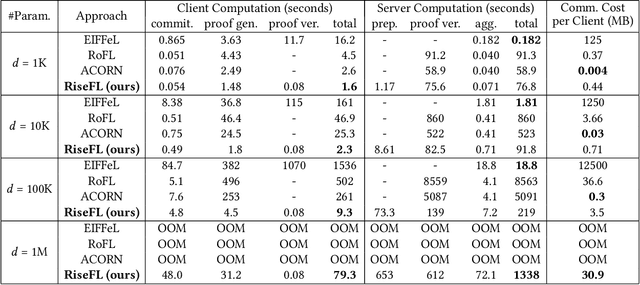Secure and Verifiable Data Collaboration with Low-Cost Zero-Knowledge Proofs
Paper and Code
Nov 26, 2023



Organizations are increasingly recognizing the value of data collaboration for data analytics purposes. Yet, stringent data protection laws prohibit the direct exchange of raw data. To facilitate data collaboration, federated Learning (FL) emerges as a viable solution, which enables multiple clients to collaboratively train a machine learning (ML) model under the supervision of a central server while ensuring the confidentiality of their raw data. However, existing studies have unveiled two main risks: (i) the potential for the server to infer sensitive information from the client's uploaded updates (i.e., model gradients), compromising client input privacy, and (ii) the risk of malicious clients uploading malformed updates to poison the FL model, compromising input integrity. Recent works utilize secure aggregation with zero-knowledge proofs (ZKP) to guarantee input privacy and integrity in FL. Nevertheless, they suffer from extremely low efficiency and, thus, are impractical for real deployment. In this paper, we propose a novel and highly efficient solution RiseFL for secure and verifiable data collaboration, ensuring input privacy and integrity simultaneously.Firstly, we devise a probabilistic integrity check method that significantly reduces the cost of ZKP generation and verification. Secondly, we design a hybrid commitment scheme to satisfy Byzantine robustness with improved performance. Thirdly, we theoretically prove the security guarantee of the proposed solution. Extensive experiments on synthetic and real-world datasets suggest that our solution is effective and is highly efficient in both client computation and communication. For instance, RiseFL is up to 28x, 53x and 164x faster than three state-of-the-art baselines ACORN, RoFL and EIFFeL for the client computation.
 Add to Chrome
Add to Chrome Add to Firefox
Add to Firefox Add to Edge
Add to Edge